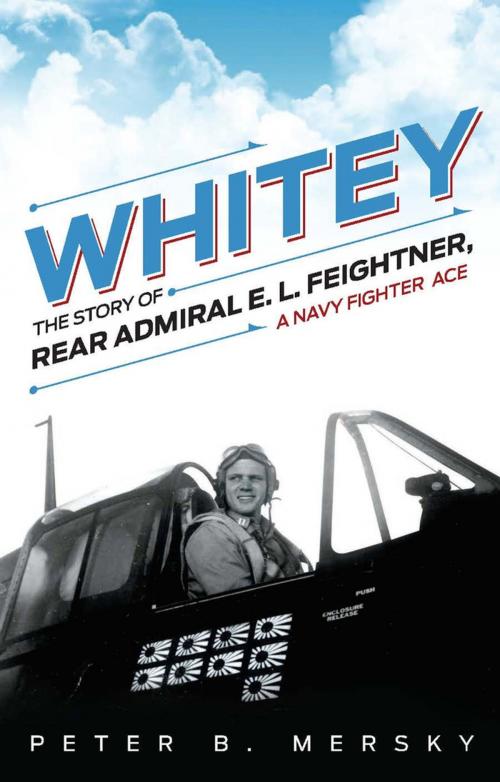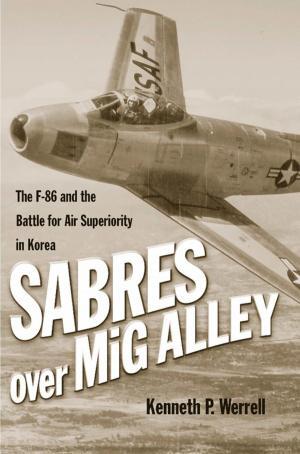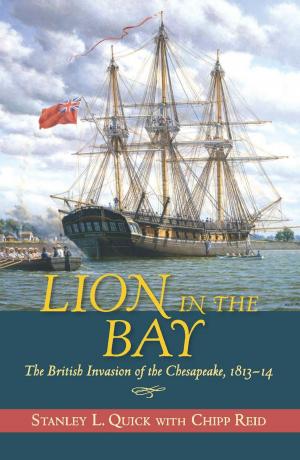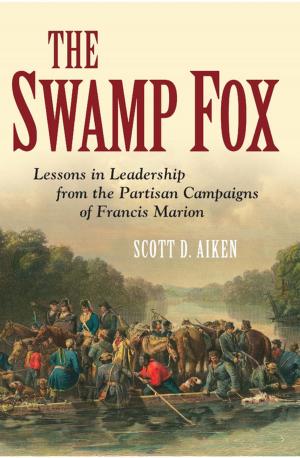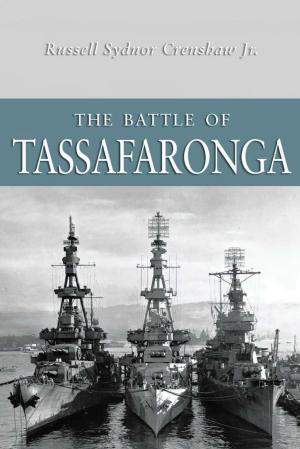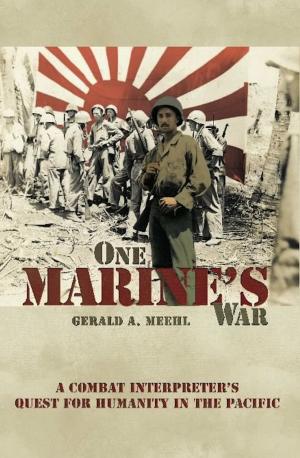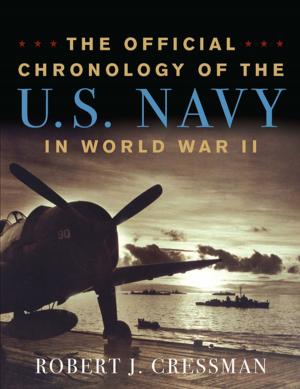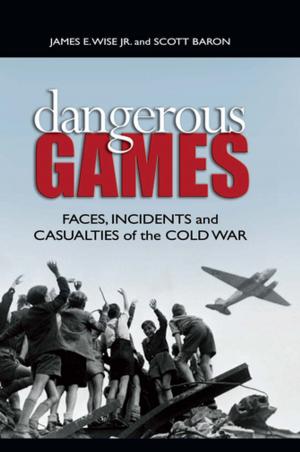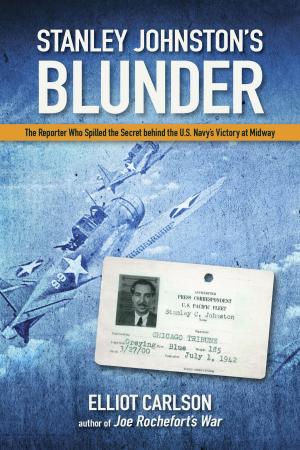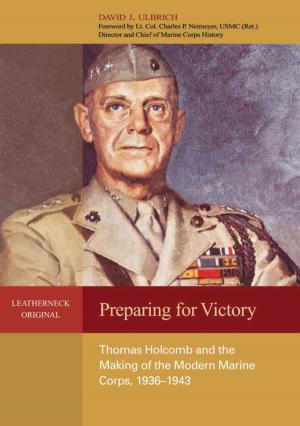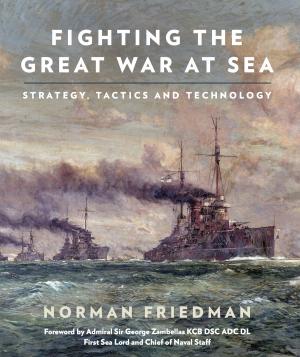Whitey
The Story of Rear Admiral E.L. Feightner, a Naval Fighter Ace
Nonfiction, History, Military, Naval| Author: | Peter Mersky | ISBN: | 9780870210846 |
| Publisher: | Naval Institute Press | Publication: | November 15, 2014 |
| Imprint: | Naval Institute Press | Language: | English |
| Author: | Peter Mersky |
| ISBN: | 9780870210846 |
| Publisher: | Naval Institute Press |
| Publication: | November 15, 2014 |
| Imprint: | Naval Institute Press |
| Language: | English |
This book is a long-awaited biography of one of the Navy’s last surviving World War II aces, and one of the Navy’s most respected officers of any period. Following a typical American mid-western boyhood, Whitey Feightner, like so many of his generation, was in the van of the huge group of young men thrust into World War II. Like some of his generation, Whitey had logged flight time in civilian aircraft before signing up to fly for the Navy. Upon receiving his commission and his wings of gold, he was signed to a fighter squadron and soon found himself in combat with the likes of Jimmy Flatley and Butch O’Hare, two leaders who imparted their own brand of flying skill and leadership on the young ensign. Whitey flew through many of the war’s most hectic and dangerous campaigns, such as Guadalcanal and the Marianas, gaining nine official kills. There were times he should not have returned, but his own skill and positive outlook helped him make it through all the dangers.
After the war, and now a member of the regular Navy, Whitey was assigned to several of the Navy’s most secret and action-filled projects down at Patuxent River, Maryland. He flew planes like the F7U Cutlass, AD Skyraider, F9F Banshee and Cougar, helping to develop these legendary fighters as they joined the fleet. Whitey also was assigned to the early teams of the Blue Angels demonstration unit. He is one of only two men who flew the radical F7U Cutlass in Blue Angels colors.
Returning to the fleet in command of a squadron, and later of an air group, Feightner continued to develop fighter tactics while patrolling the oceans in defense of America and its allies. In between tours at sea, Feightner served in the Pentagon dealing with all the personalities and political turmoil of the time while trying to bring Naval Aviation into the future. It wasn’t easy. Working with such luminaries as Hyman Rickover and Elmo Zumwalt was not for the feint-hearted, and even Whitey did not come away unscathed. Yet, through it all, he kept the smile and affable demeanor that characterized this rare and highly skilled naval aviator. His life story could serve as a model for any young aviator to follow.
After the war, and now a member of the regular Navy, Whitey was assigned to several of the Navy’s most secret and action-filled projects down at Patuxent River, Maryland. He flew planes like the F7U Cutlass, AD Skyraider, F9F Banshee and Cougar, helping to develop these legendary fighters as they joined the fleet. Whitey also was assigned to the early teams of the Blue Angels demonstration unit. He is one of only two men who flew the radical F7U Cutlass in Blue Angels colors.
Returning to the fleet in command of a squadron, and later of an air group, Feightner continued to develop fighter tactics while patrolling the oceans in defense of America and its allies. In between tours at sea, Feightner served in the Pentagon dealing with all the personalities and political turmoil of the time while trying to bring Naval Aviation into the future. It wasn’t easy. Working with such luminaries as Hyman Rickover and Elmo Zumwalt was not for the feint-hearted, and even Whitey did not come away unscathed. Yet, through it all, he kept the smile and affable demeanor that characterized this rare and highly skilled naval aviator. His life story could serve as a model for any young aviator to follow.
This book is a long-awaited biography of one of the Navy’s last surviving World War II aces, and one of the Navy’s most respected officers of any period. Following a typical American mid-western boyhood, Whitey Feightner, like so many of his generation, was in the van of the huge group of young men thrust into World War II. Like some of his generation, Whitey had logged flight time in civilian aircraft before signing up to fly for the Navy. Upon receiving his commission and his wings of gold, he was signed to a fighter squadron and soon found himself in combat with the likes of Jimmy Flatley and Butch O’Hare, two leaders who imparted their own brand of flying skill and leadership on the young ensign. Whitey flew through many of the war’s most hectic and dangerous campaigns, such as Guadalcanal and the Marianas, gaining nine official kills. There were times he should not have returned, but his own skill and positive outlook helped him make it through all the dangers.
After the war, and now a member of the regular Navy, Whitey was assigned to several of the Navy’s most secret and action-filled projects down at Patuxent River, Maryland. He flew planes like the F7U Cutlass, AD Skyraider, F9F Banshee and Cougar, helping to develop these legendary fighters as they joined the fleet. Whitey also was assigned to the early teams of the Blue Angels demonstration unit. He is one of only two men who flew the radical F7U Cutlass in Blue Angels colors.
Returning to the fleet in command of a squadron, and later of an air group, Feightner continued to develop fighter tactics while patrolling the oceans in defense of America and its allies. In between tours at sea, Feightner served in the Pentagon dealing with all the personalities and political turmoil of the time while trying to bring Naval Aviation into the future. It wasn’t easy. Working with such luminaries as Hyman Rickover and Elmo Zumwalt was not for the feint-hearted, and even Whitey did not come away unscathed. Yet, through it all, he kept the smile and affable demeanor that characterized this rare and highly skilled naval aviator. His life story could serve as a model for any young aviator to follow.
After the war, and now a member of the regular Navy, Whitey was assigned to several of the Navy’s most secret and action-filled projects down at Patuxent River, Maryland. He flew planes like the F7U Cutlass, AD Skyraider, F9F Banshee and Cougar, helping to develop these legendary fighters as they joined the fleet. Whitey also was assigned to the early teams of the Blue Angels demonstration unit. He is one of only two men who flew the radical F7U Cutlass in Blue Angels colors.
Returning to the fleet in command of a squadron, and later of an air group, Feightner continued to develop fighter tactics while patrolling the oceans in defense of America and its allies. In between tours at sea, Feightner served in the Pentagon dealing with all the personalities and political turmoil of the time while trying to bring Naval Aviation into the future. It wasn’t easy. Working with such luminaries as Hyman Rickover and Elmo Zumwalt was not for the feint-hearted, and even Whitey did not come away unscathed. Yet, through it all, he kept the smile and affable demeanor that characterized this rare and highly skilled naval aviator. His life story could serve as a model for any young aviator to follow.
